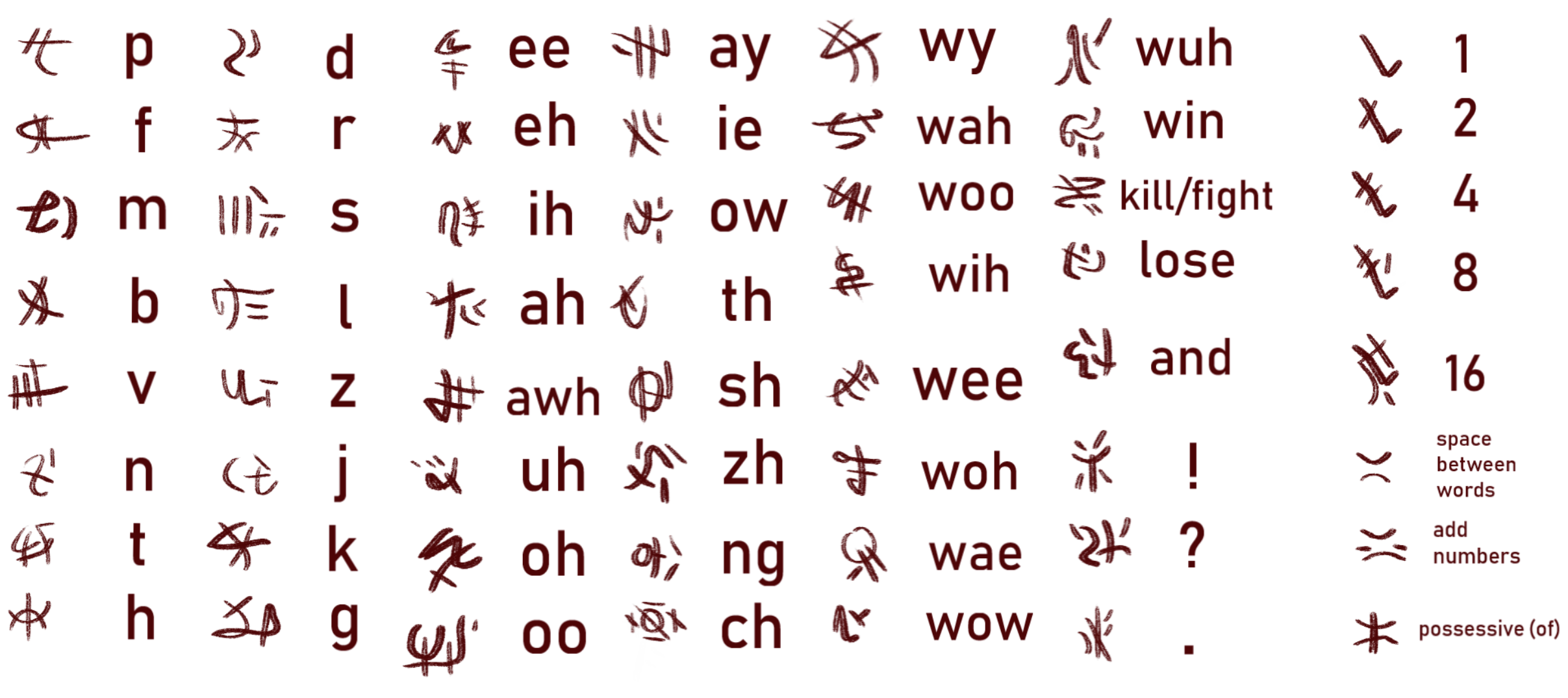Isutan
A language spoken by the Isutan people of the The Eastern Provinces.
Originating from seven different languages, the unification of the Eastern Provinces under the Ganpoumi Fi led to the emulsification of the tongues. The Isutan tongue spoken following the Ganpoumi Fi's era of governance can be largely understood and spoken by everyone in the Eastern Provinces, although distinct dialects still existed within the various provinces.
Written Form #

Isutan was mainly phonemic, with 56 different graphemes making up its orthography. Notably, the Isutan word for "fight" or "kill", "win", and "lose" had their own characters, highlighting how important these competitive terms were in the warring history of the Eastern Kingdoms.
Numeral System #
Isutan used a special number system that used 5 different notations. Each symbol represented a value, and subsequent symbols were double or half of the symbol before or after it, respectively.
The Isuten number system consisted of a character for 1, 2, 4, 8, and 16. An "add numbers" symbol could be used to combine two or more Isutan numeral characters together to create a larger sum. When writing large numbers, it was bad practice to use smaller numerals where it could be avoided: the largest numeral characters were always used to minimize the length of the written word, and the largest numerals were always put first.
Examples
Below are some examples of how Isutan could be used to write various numbers. Note that the "+" symbol is standing in for the Isutan character for "adding numbers".
$5=4+1$ $43=16+16+8+2+1$ $12=8+4$ $100=16+16+16+16+16+16+4$
Isutan Numbers from 1 to 10
| Number | Isutan Sum Notation |
|---|---|
| $1$ | $1$ |
| $2$ | $1+1$ |
| $3$ | $2+1$ |
| $4$ | $4$ |
| $5$ | $4+1$ |
| $6$ | $4+2$ |
| $7$ | $4+2+1$ |
| $8$ | $8$ |
| $9$ | $8+1$ |
| $10$ | $8+2$ |
Because large Isutan numbers could end up being quite complex and time-consuming to notate, a set of sort of shorthand colloquialisms emerged to substitute larger values in written text that wasn't primarily scientific. For example, the Isutan phrase for "tambaboo shoots" was often used to replace a value of 100. The phrase for "sharp fork" was used to replace values of 30. The word for "army" was frequently substituted for values of 1000. These terms could be added alongside true Isuten numeral characters to create values: the number 182 could be written informally as "tambaboo shoots + sharp fork + sharp fork + 16 + 4 + 2".
The cultural awareness required to understand and basic complexity of Isutan numerals often led to gross mistranslations into other languages.